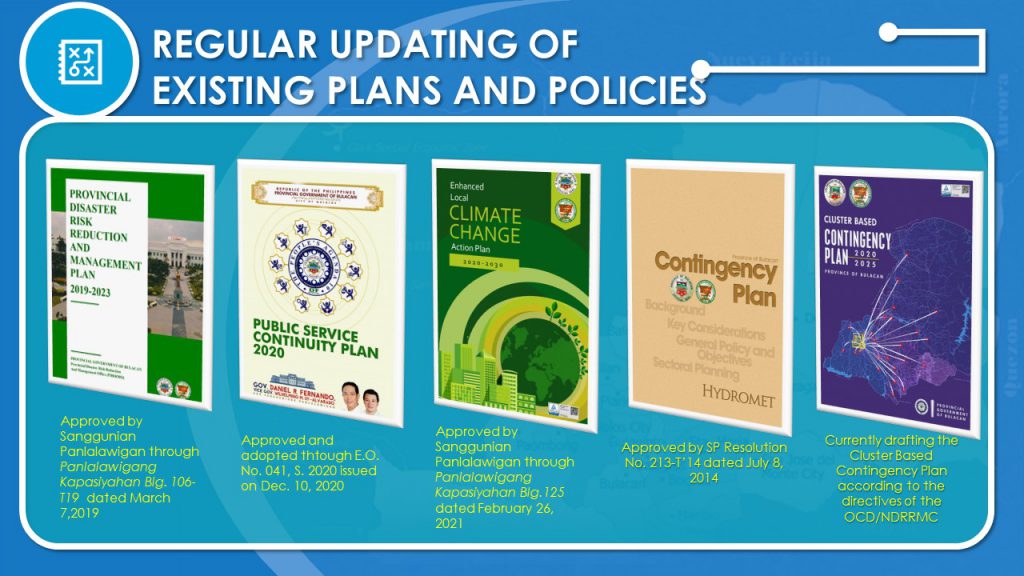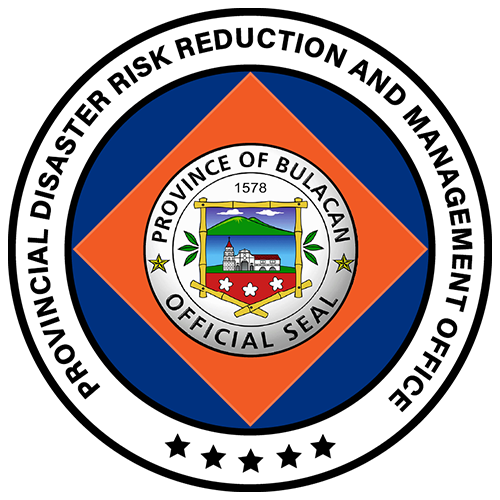
PLANS
1. Local DRRM PLAN
The Local Disaster Risk Reduction and Management Plan (LDRRMP) realizes the requirement of RA No. 10121 of 2010, which provides the legal basis for policies, plans and programs to deal with disasters. The Local DRRM Plan covers four thematic areas, namely, (1) Disaster Prevention and Mitigation; (2) Disaster Preparedness; (3) Disaster Response; and (4) Disaster Rehabilitation and Recovery, which correspond to the structure of the Provincial Disaster Risk Reduction and Management Council (PDRRMC).
2. CONTINGENCY PLAN (CP)
Contingency planning means preparing the provincial government to be ready to respond effectively in the event of an emergency.
It is the process of establishing arrangements in advance to enable timely, effective and appropriate response in the event of a hazard or a disaster. CP is a guide that specifies the appropriate steps to undertake in preparing for, monitoring, and carrying out other responsibilities in case of an emergency. However, it should be noted that a CP does not predict the exact scenario of an emergency situation.
3. LOCAL CLIMATE CHANGE ACTION PLAN (LCCAP)
The Climate Change Act of 2009, recognizes the need to develop the LCCAP. The LCCAP seeks to define the province strategies for addressing identified risks and vulnerabilities, set climate change targets, and identify priority adaptation and mitigation actions in support of development goals and priorities. The Climate Change Act requires each Local Government Unit (LGU) to plan and prepare for climate change by developing a Local Climate Change Action Plan (LCCAP).
4. PUBLIC SERVICE CONTINUITY PLAN (PSCP)
PSCP is document containing strategies and mechanisms of a government agency / public sector organization to ensure continuous delivery of public services amidst any disruption. Pursuant to National Disaster Risk Reduction and Management Council (NDRRMC) Memorandum No. 33 s. 2018, all government member agencies of the DRRM councils at all levels and other government departments, offices, bureaus, services, units, and instrumentalities are enjoined to develop their own PSCP.
